In the Footsteps of a Glorious City
Set against the expanse of Mount Paggaio, the city of Philippi tells a captivating tale spanning centuries.
Designated as a UNESCO World Heritage Site in 2016, the archaeological site of Philippi provides a look at where antiquity, Rome and Byzantium converged. The city was founded in 360 BCE by Thasian colonists. Initially called Krinides, the city was conquered shortly thereafter and fortified by King Philip II of Macedonia, who renamed it Philippi.
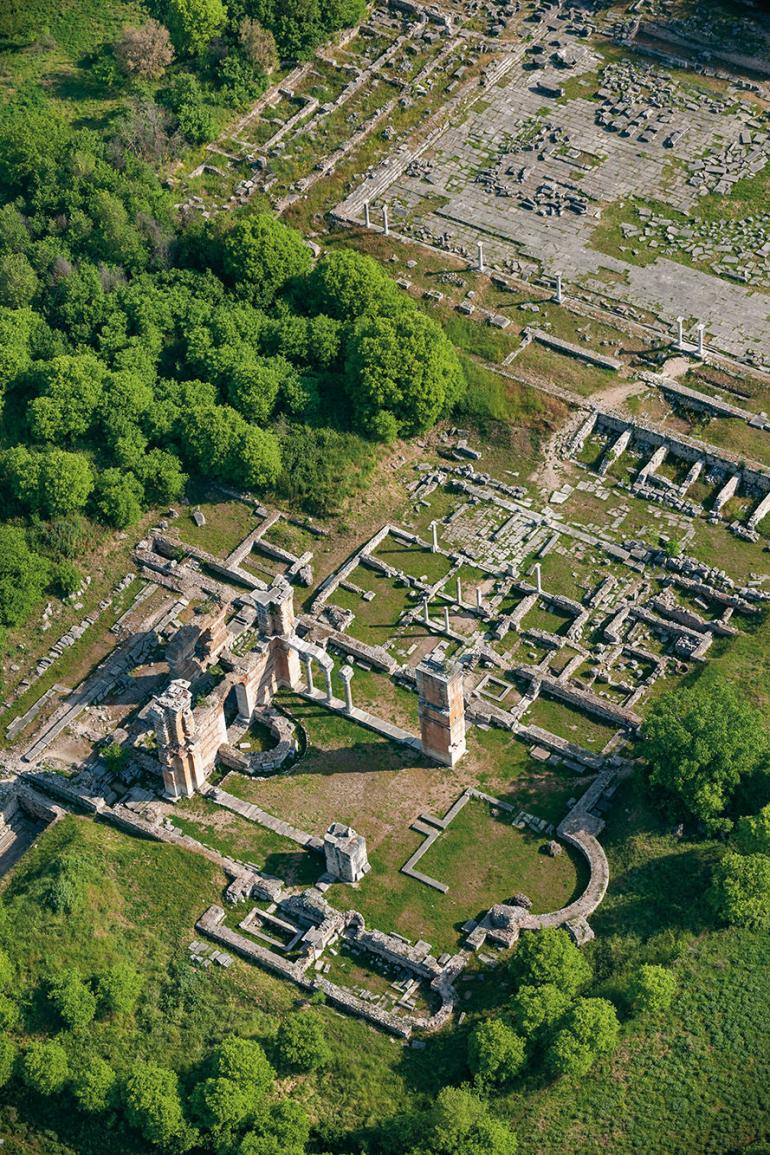
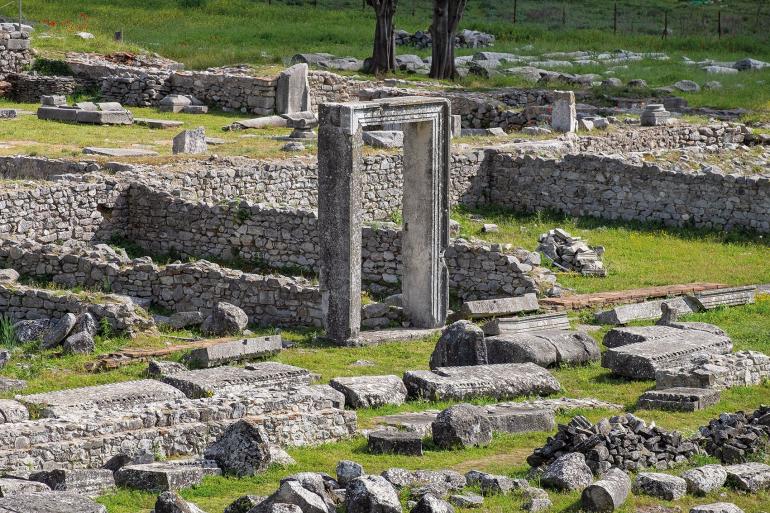
Its transformation into a Roman colony by Octavian after the dramatic battle of Philippi in 42 BCE – that, and the existence of the Via Egnatia, a major Roman road through the city– further enhanced its prestige, making it a commercial, economic and administrative centre of the Roman Empire. Years later, the Apostle Paul founded the first Christian Church in Europe on the same soil (49 CE). His brief imprisonment did not prevent Philippi from emerging as a metropolis of early Christianity.
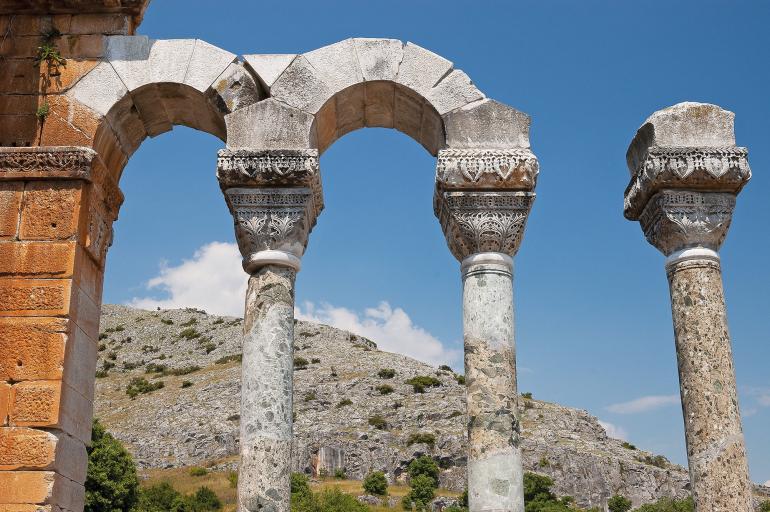
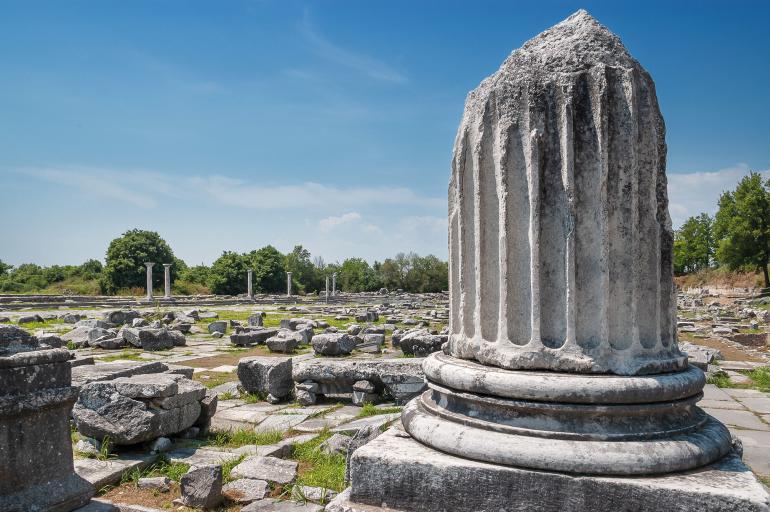
Amongst the various monuments that bore witness to the passage of great civilisations through the region, the Ancient Theatre is particularly impressive. Originally constructed in the 4th century BCE by Philip II, its purpose evolved over time from a Greek theatre to a Roman arena for gladiatorial games, then repurposed as a workshop. It experienced periods of demolition and vandalism until its recent restoration. Today, the Ancient Theatre hosts musical and theatrical performances as part of the Philippi Festival.
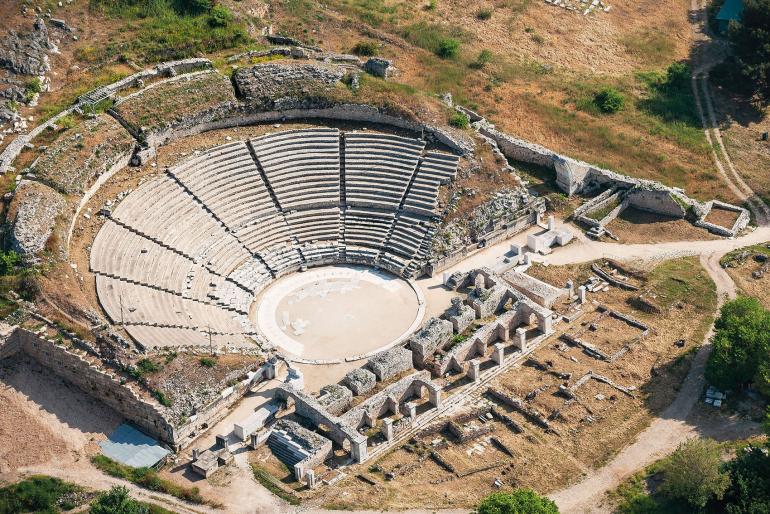
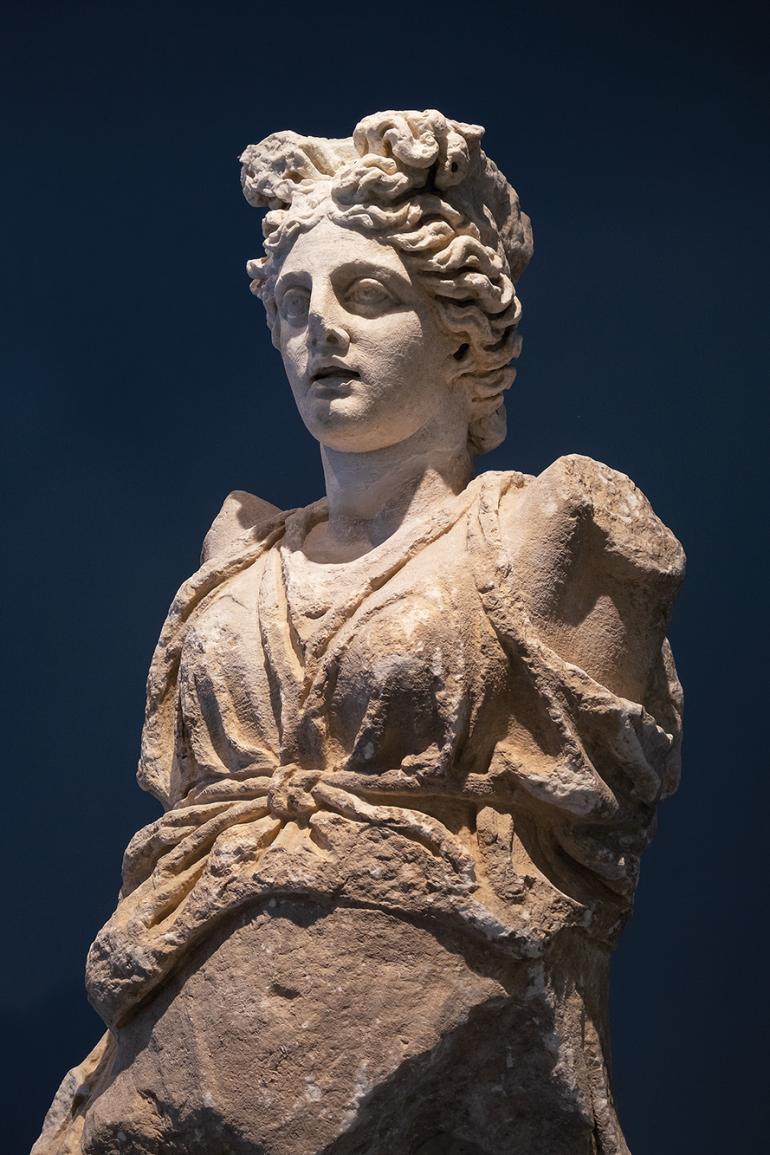
Other notable attractions are the city walls, the Acropolis, and the Agora (the forum which functioned as a crucial administrative hub in Roman times). Following are the Palaistra, the reservoir traditionally linked to the imprisonment of the Apostle Paul by the Romans, and the Octagon, a grand metropolitan church dedicated to him. Be sure to explore the city’s three basilicas dating back to the 5th-6th centuries CE. These early Christian monuments in Philippi are widely regarded as the most well-preserved examples from this historical period worldwide.
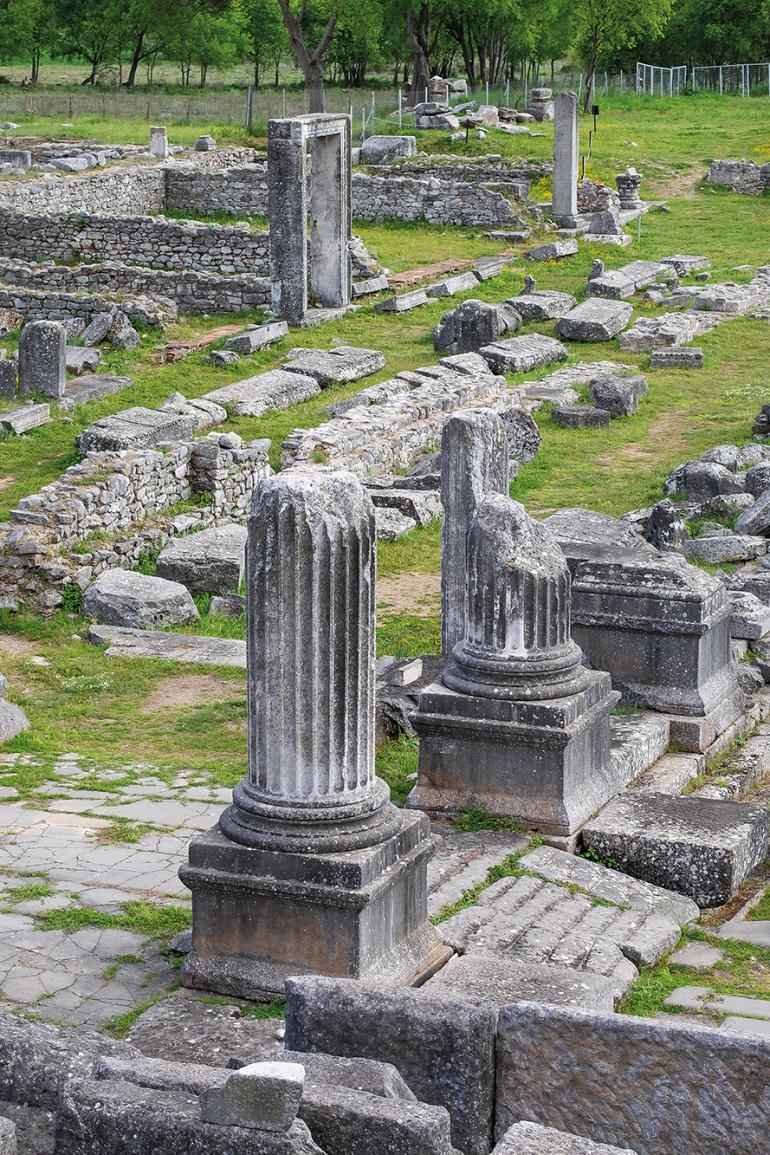
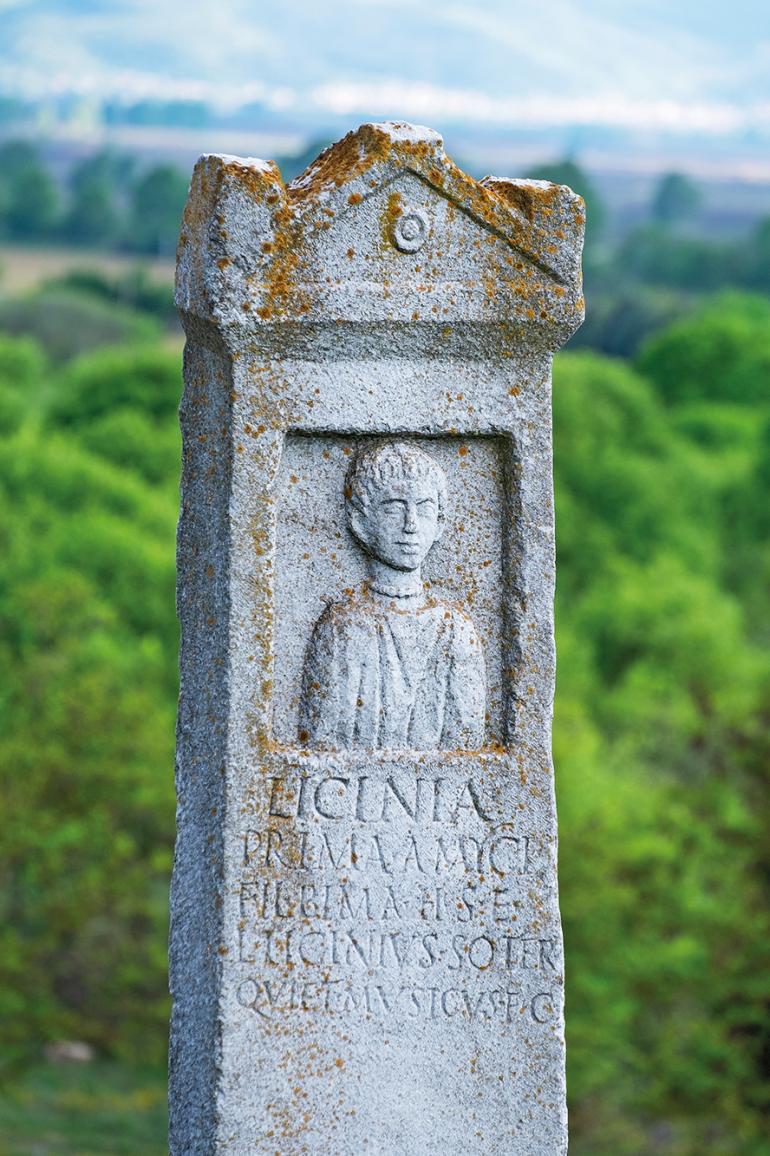
_______________________________________
TEXT : KALLIA KASTANI
PHOTOS : YIANNIS GIANNELOS

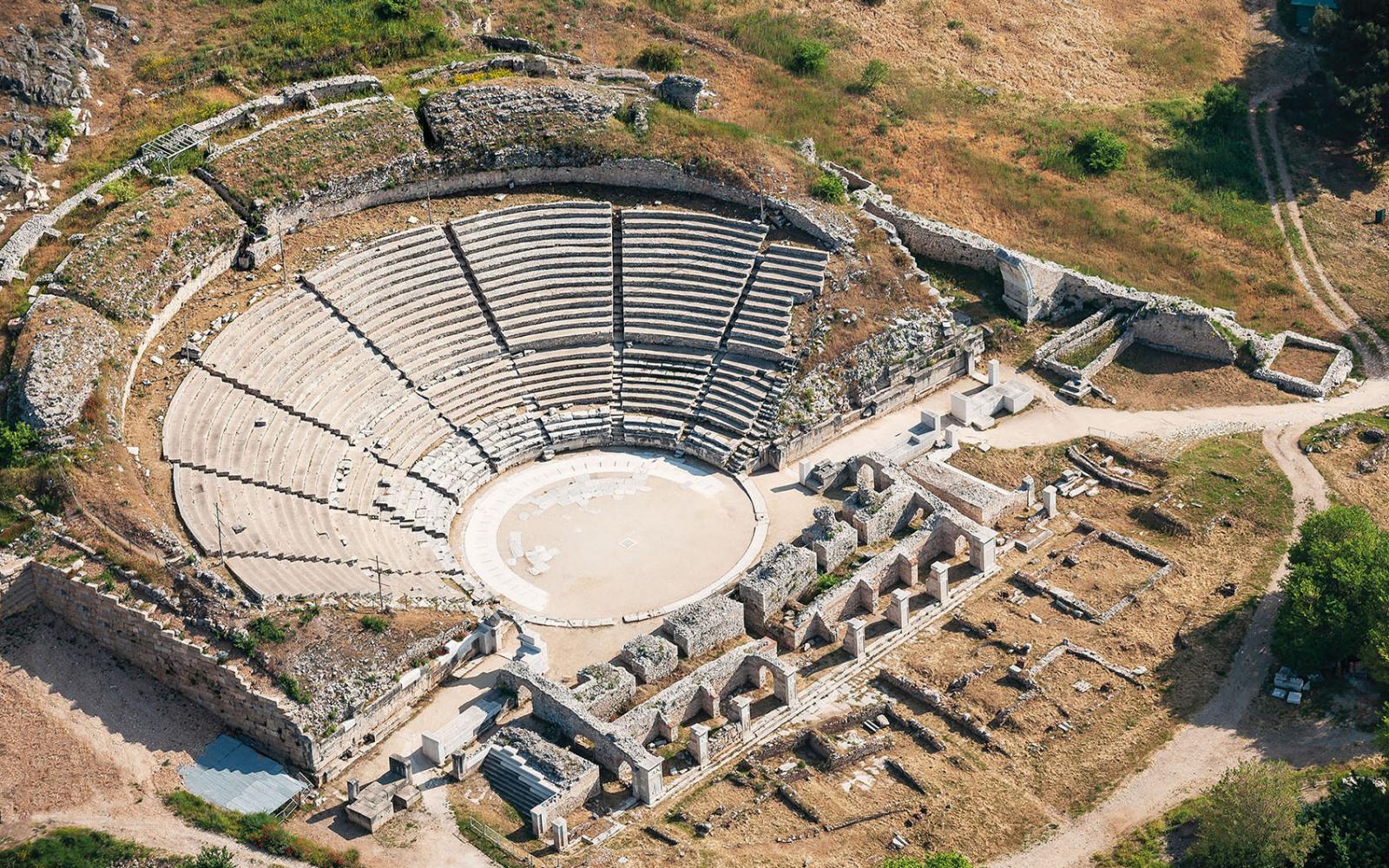
YOU MAY ALSO LIKE
An Imaret Experience
MAGNIFICENT ROUTES
The Home of Mehmet Ali Pasha